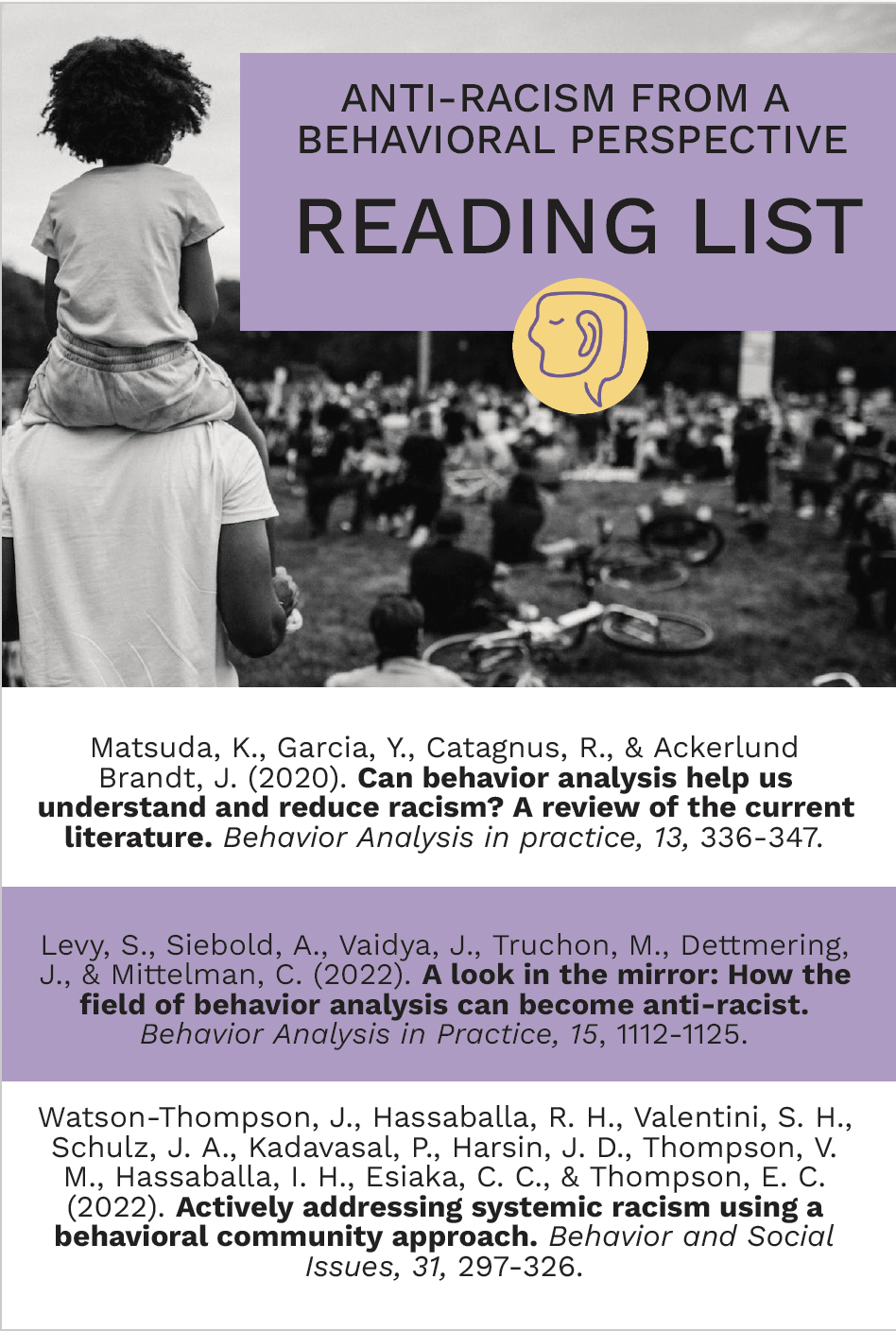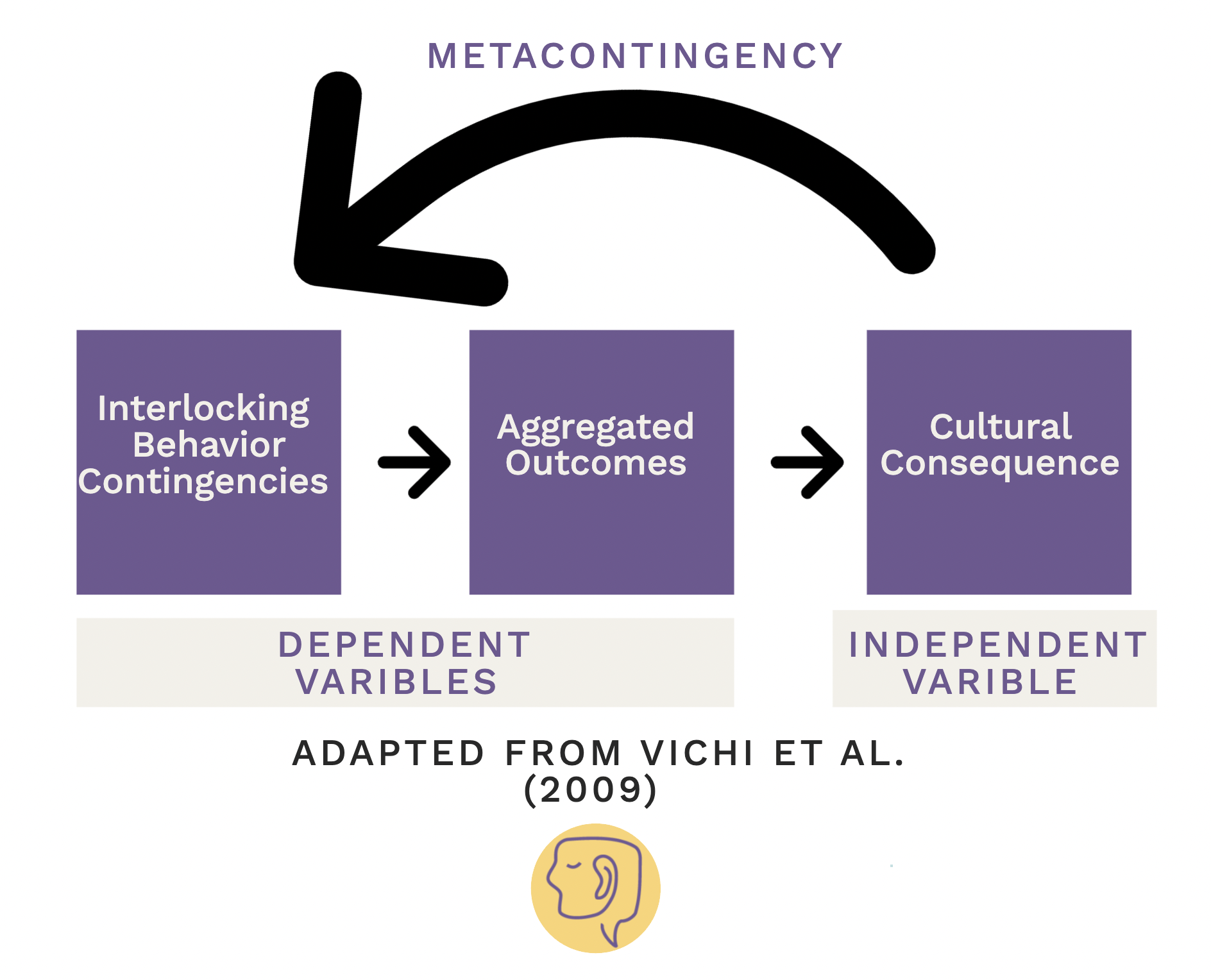
In honor of Martin Luther King, Jr. Day we wanted to share some recent peer-reviewed behavioral papers on racism, as well as some ideas that we hope will inspire introspection and reflection so we can create more ethical, anti-racist, and equitable work places.
We wanted to highlight these papers for a few reasons:
1. Understand the problem (Matsuda et. al, 2020)
2. Understand our relation to the problem (Levy et al., 2022)
3. Understand how interventions can influence the problem (Watson-Thompson, et al., 2022)
4. Show increased insistence within our field to make a meaningful changes
Here are direct open access links to these papers:
Can Behavior Analysis Help Us Understand and Reduce Racism? A Review of the Current Literature (here)
A Look in the Mirror: How the Field of Behavior Analysis can Become Anti-Racist (here)
Actively Addressing Systemic Racism Using a Behavioral Community Approach (here)
We know that behaviors are formed through based on how we interact with our environment. That includes people, objects, sounds, smells, and everything in between. This is a fairly straightforward idea - kids get burned when they touch the stove and they learn to not touch it again. We learn to count to 100 through the modeling and excitement from a teacher or parent.
This idea that our environment applies to systemic issues still applies, but it becomes more difficult to understand, analyze, influence, and even talk about.

A metacontingency is a way of understanding how certain behaviors become normalized and common at a cultural level. It is technical so we are going to provide a high level description of each of its 3 parts:
Interlocking Behavior Contingencies: These are small level interactions between people. It takes at least 2 people, but there could be more. It's specifically looking at what is reinforced or socially punished in our day-to-day interactions.
Aggregated Outcome: This is what results from all those smaller day-to-day interactions. That may be creating something, or it could even be a "vibe".
Cultural Consequence: This is how a critical amount of people respond to the outcome. Do they like it? Do they hate it, or view it as unethical? Do they not agree, but not say anything? This is critical, because it influences the way people think about things (aka, framing).
Metacontingencies Repeat: After the cultural consequence, this framing influences how people act in the next opportunity for a small interaction (aka, Interlocking Behavioral Contingency).
Both in our larger cultures, as well as in our smaller company "cultures", we are influenced by metacontingencies without us necessarily seeing all the moving pieces.
If we are in environments where it is normalized to make inappropriate race-based jokes, engage in microaggressions, or don't have equity in hiring practices, we have a metacontingency problem.
If you're looking for a TL;DR version, much of behavioral science indicates that we need to start at the individual level (the IBC). That means we need to start influencing those day-to-day interactions.
But, that involves people who have power being boldly anti-racist. You may have power by title, by privilege, by social capital... power can mean many things.
In order to influence these systemic issues, it takes more than one person. That's the whole point of the meta-contingency. By being boldly anti-racist and modeling this for others, we show people the language they can use to do the same.
This can become contagious (the aggregated outcome in the IBC), which ultimately changes the consequence.
I, myself, have been guilty of sitting by and watching things that make me feel uncomfortable slide. I assumed that this was not my place, or feared social repercussions. But, when I learned about metacontingencies, I realized that me sitting idly perpetuated the problem.
We frequently assume that no action means we are doing no harm. But, as you can hopefully see, if you're not impacting the outcomes, you ARE adding to the cultural consequence that keeps these systemic issues going.
This is an imperfect analysis. I'm still learning, but one MLK may have said it best:
OUR LIVES BEGIN TO END THE DAY WE BECOMES SILENT ABOUT THINGS THAT MATTER.
- MARTIN LUTHER KING, JR.


